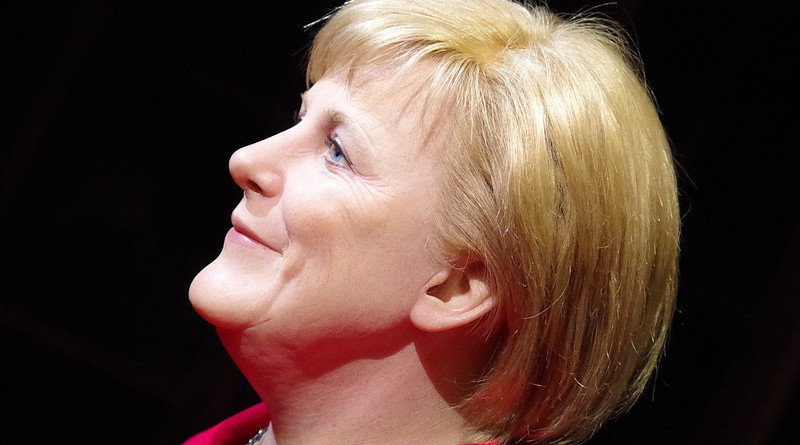Women’s Empowerment And The ‘Merkel Effect’ – OpEd
By Arab News
By Dr. Diana Galeeva*
After 16 years in power, Angela Merkel is stepping down as German chancellor. She is the developed world’s longest-serving elected female leader, and as CNN observed: “In the future, it will be very difficult to argue that a woman cannot be a successful leader, and that is a very important message to tell.”
Before Merkel’s leadership, history recognized a number of famous empowered women, such as Queen Elizabeth, the monarch for the UK and 15 other Commonwealth realms; and the “Iron Lady” Margaret Thatcher, who was UK prime minister from 1979 to 1990 and leader of the country’s Conservative Party from 1975 to 1990.
However, particularly since 2005 when Merkel came to power, there has been a recognizable shift in the dynamics of the women’s empowerment worldwide. To stick with the UK, Theresa May took office as prime minister immediately after the 2016 Brexit vote, in the initial stages of great uncertainty over the future of relations with the EU.
In the US, defeated 2016 presidential candidate Hillary Clinton nonetheless claimed a majority in the national popular vote; in the next national poll, Kamala Harris was integral to the Democratic victory, and has been a highly visible first female vice president. She remains widely tipped for a future shot at the presidency.
These dynamics can also be detected in the Middle East. For example, by August 2021, nine members of the UAE Cabinet were women. This follows the 2019 directive by the president of the UAE, Sheikh Khalifa bin Zayed Al-Nahyan, that 50 percent of seats on the Federal National Council should be held by women.
In Lebanon, even if Hassan Diab’s government was unable to solve a range of political, economic and health crises, failing to enact the major reforms sought by foreign donors, it can at least can be remembered for supporting women’s empowerment by appointing six female ministers — the largest number in the nation’s history.
Are these dynamics of increasing women’s empowerment directly linked to the “Merkel effect,” or simply a consistent historical pattern?
This is a complex question and needs detailed answers that consider social changes and transformations in societies; its interpretation may be very different for particular regions of the world. For example, the growth of feminism seems to have struck new ground with the #Me Too movement, exposing widespread sexual abuse in various industries, especially the media. The trend in the Middle East toward female empowerment has frequently been linked to Western criticism of human rights abuses and inequalities, such as the much highlighted 2018 reforms in Saudi Arabia allowing women to drive.
However, a continuing dichotomy exists between opportunities for women and their ability to take advantage of these possibilities. In the political sphere, this can appear as a lack of female solidarity; in the 2020 Kuwaiti elections, 29 female candidates stood, but none was elected. There is a gap between involving women in public life and supporting them in positions of power — even by other women.
According to Haifa Al-Sanousi, professor of literature and psychoanalysis at Kuwait University, this “reflects the confidence of women in men as representing them in the assembly.” Some have suggested that a quota system may be needed to realize the change. This brief survey illustrates the great variety of ways in which women’s empowerment must advance, and in different parts of the world.
Ultimately, it is impossible to say whether Merkel is a cause or an effect of a wider trend toward female empowerment. What can clearly be argued, however, is that her leadership has brought steady progress and development within her sphere of influence — not only a female leader but also an economically and diplomatically successful one. There has been steady growth, with Germany’s gross domestic product rising from $2.846 trillion in 2005 to $3.806 trillion in 2021.
Merkel’s leadership will be remembered, above all, for her ability to handle crises: The global financial crises, the eurozone debt crisis, and the immigration crisis in 2015. The pandemic has proven a tough and prolonged challenge. Initially Germany performed better than any other Western country in reducing fatalities and shoring up the economy, but since April 2021 infection rates have risen sharply to more than 4.2 million, with 94,035 deaths by September.
These figures keep Germany in 14th place among European countries, compared with the UK (4th), France (7th), Spain (11th), and Italy (12th) — far from a triumph, but contextually an illustration of Merkel’s ability to communicate and convince her electorate compared with some other leaders.
By whatever metric, Merkel has proven to be a steady and steely leader, especially internationally. Germany’s moral and economic stature has grown during her term and stands in contrast to the controversies and calamities surrounding the heads of state in some other Western countries.
This might suggest that the world should stop considering sex as the sole indicator of erudition, professionalism and readiness for high office.
Legal or social discrimination against women, or excessive focus on their womanhood, have no place in modern society; the example of Merkel is of a highly intelligent, strong and successful politician, who happens to be a woman. There is even a case for better interpersonal relationships and pragmatism in female leaders, with less fear of losing face or posturing. We may hope that Merkel has not only defied the old stereotypes in her long and impressive career, but even made them redundant.
The future will depend on her successors, with many young female politicians in Germany, such as the SDP’s Anna Kassautzki, ready to take up the challenge.
- Dr. Diana Galeeva is an academic visitor to St. Antony’s College, Oxford University, having previously also been a scholar-in-residence at the Oxford Center for Islamic Studies. She is a co-editor of the forthcoming book ‘Post-Brexit Europe and UK: Policy Challenges Towards Iran and the GCC States’ (Palgrave Macmillan).

